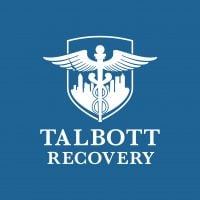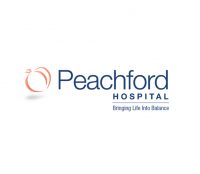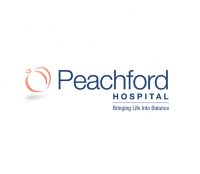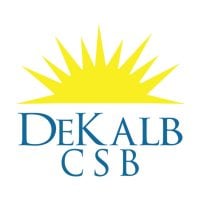Turn Around Recovery Residences - Buford Highway
Drug Rehab Center in Atlanta, Georgia
- Opioid Addiction
- Dual Diagnosis
- Drug Addiction
- Alcoholism
Turn Around Recovery Residences - Buford Highway is an addiction treatment facility located in Atlanta, GA that offers customized evidence-based therapies, individualized case management services, access to 12 step programs, and experiential and therapeutic activities to promote long-term recovery success.
Multiple patients have reported Turn Around Recovery Residences - Buford Highway as permanently closed.
Research other rehabs in Atlanta, Georgia, or get help finding an open facility.
Our experts will find you an alternative facility.
(888) 674-0062 24/7 Free, Confidential, Expert HotlineAbout This Georgia Facility
Turn Around Recovery Residences - Buford Highway is a drug treatment center located in Atlanta, Georgia. This facility specializes in helping individuals struggling with alcoholism, opioid addiction, dual diagnosis, and drug addiction. With a focus on providing a supportive and structured environment, Turn Around Recovery Residences - Buford Highway offers a range of services for those looking to get sober. Their facility is equipped to offer various levels of care, ensuring that individuals receive the appropriate treatment based on their specific needs and circumstances.
Turn Around Recovery Residences - Buford Highway offers a comprehensive range of services and treatment methods to address addiction and substance abuse. They provide personalized treatment plans that incorporate evidence-based therapies to help individuals on their path to recovery. These therapies may include individual counseling, group therapy sessions, psychoeducation, and 12-step programs. In addition, the facility offers support for clients with dual diagnoses, recognizing the complex nature of mental health issues combined with addiction. Through a combination of compassionate care and evidence-based practices, Turn Around Recovery Residences - Buford Highway strives to empower individuals in their journey towards long-term sobriety and improved overall well-being.
Genders
Ages
Modality
Additional
Conditions and Issues Treated
Many people who struggle with opioid addiction need to attend specific programs like methadone , Suboxone or Vivitrol clinics.
These types of programs will provide the patient with legal, prescription medications that can help them overcome their cravings for illegal opioids like heroin or fentanyl . If the patient has a chronic condition like Hepatitis C, they must undergo treatment before they can begin taking these medications.
Levels of Care Offered at Turn Around Recovery Residences - Buford Highway
This center offers a variety of custom treatment tailored to individual recovery. Currently available are Drug Rehab, with additional therapies available as listed below.
Therapies & Programs
Therapy sessions focused on the individual addict can provide much-needed guidance as they work toward overcoming their addiction. These types of sessions typically involve guidance from a therapist, who will help addicts identify and process their feelings and cravings.
During these sessions, addicts may develop plans for coping with the triggers that typically lead to relapse and learn how to avoid those triggers during their recovery process.
If you are looking for drug recovery, couples therapy can be a great option. This type of therapy can help rebuild trust and joy in relationships that may have been damaged by addiction. It can also help reduce the dysfunctional behavior in a relationship that may trigger addiction. A patient’s partner will be involved in the process. They can also benefit from therapy, especially if they are trying to live with an addict.
The main goal of family therapy for drug addiction is to create an environment where communication can occur without judgment, hostility, or blame that often occurs within a family.
Family therapy is a type of group problem-solving that aims to improve communication and relationships between the patient, their family, and sometimes friends. The therapist is with the family as they learn to communicate with each other differently, especially with the addict when s/he is using.
The family can learn to reduce their enabling behavior or rally together and support each other during tough times. The patient also learns how to deal with their addiction and maintain sobriety while interacting with the family.
Different types of addiction treatment services are available. Within this article, group therapy is of interest due to its high success rate compared to individual therapy. Group therapy settings are beneficial because they allow recovering addicts to build a strong support network.
Benefits of group therapy are:
- Reduces feelings of isolation
- Immediate access to social support in the form of fellow addicts in recovery
- Lowers risk of relapse
- Increases rate of sobriety
- Builds coping skills that can be applied to everyday life
Additional Details
Specifics, location, and helpful extra information.
Atlanta, Georgia 30340 Phone Number(770) 457-1280 Meta DetailsUpdated November 25, 2023
Staff Verified
Patient Reviews
There are no reviews yet. Be the first one to write one.
Atlanta, Georgia Addiction Information
Prescription opioid use has caused a large increase in the total amount of overdoses in Georgia. Almost 12% of the Georgia population uses illicit drugs each year, and slightly over 3.5% also abuses alcohol at the same time. This does not include those who binge-drink at least once a month, which includes 20% of all Georgians.
Addiction statistics for 2019 show that about 62% of people died from drug overdoses in Atlanta. Opioids were involved in 59.5% of those deaths. The community is plagued by the illegal drug trade, which contributes to crime and violence. In 2013, there were 9,570 admissions to substance abuse treatment programs in Atlanta. With patience and perseverance, you should be able to find the perfect treatment facility for your needs.
Treatment in Nearby Cities
- Douglas, GA (185.0 mi.)
- College Park, GA (19.8 mi.)
- Morven, GA (209.6 mi.)
- Washington, GA (89.0 mi.)
- Columbus, GA (107.7 mi.)
Centers near Turn Around Recovery Residences - Buford Highway


The facility name, logo and brand are the property and registered trademarks of Turn Around Recovery Residences - Buford Highway, and are being used for identification and informational purposes only. Use of these names, logos and brands shall not imply endorsement. RehabNow.org is not affiliated with or sponsored by Turn Around Recovery Residences - Buford Highway.




